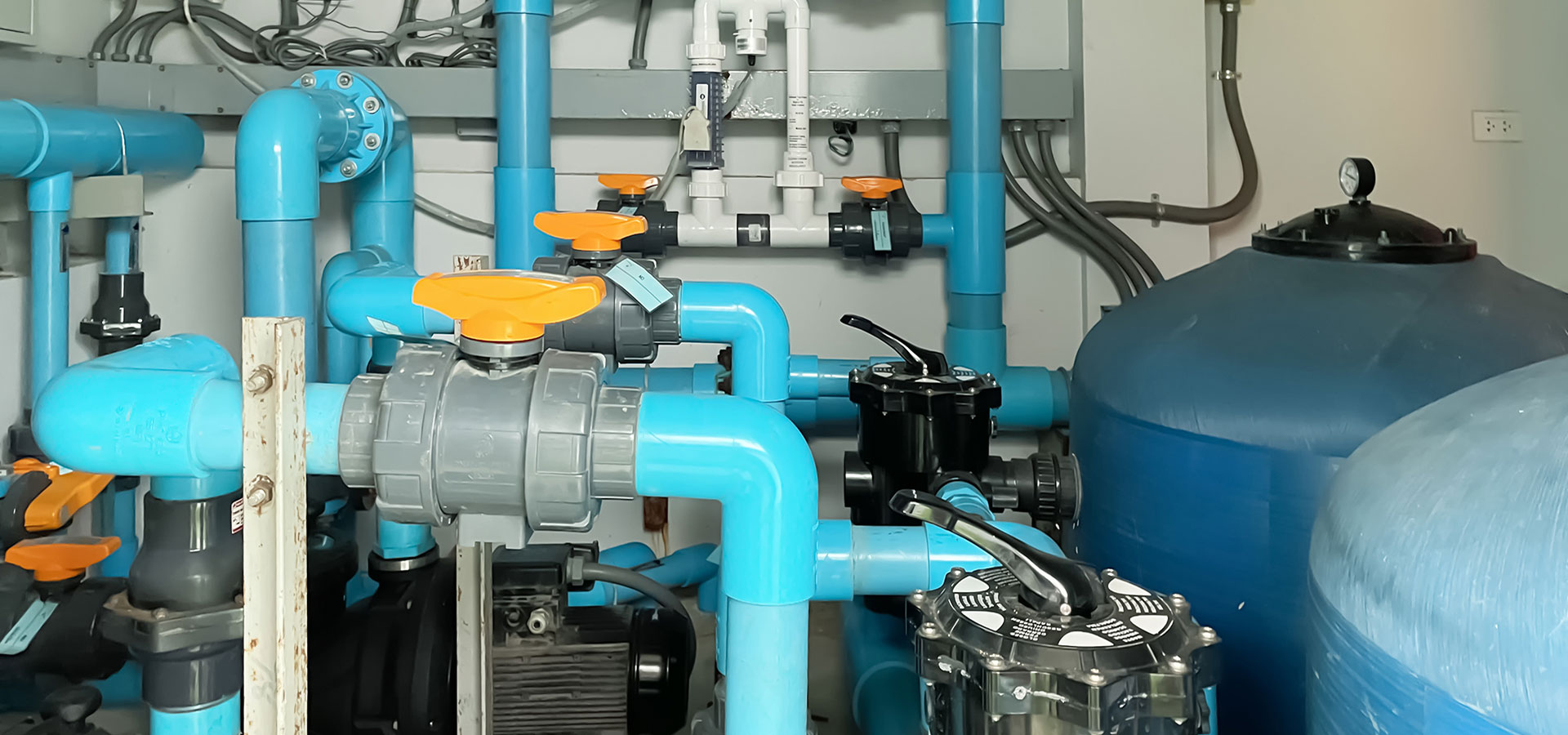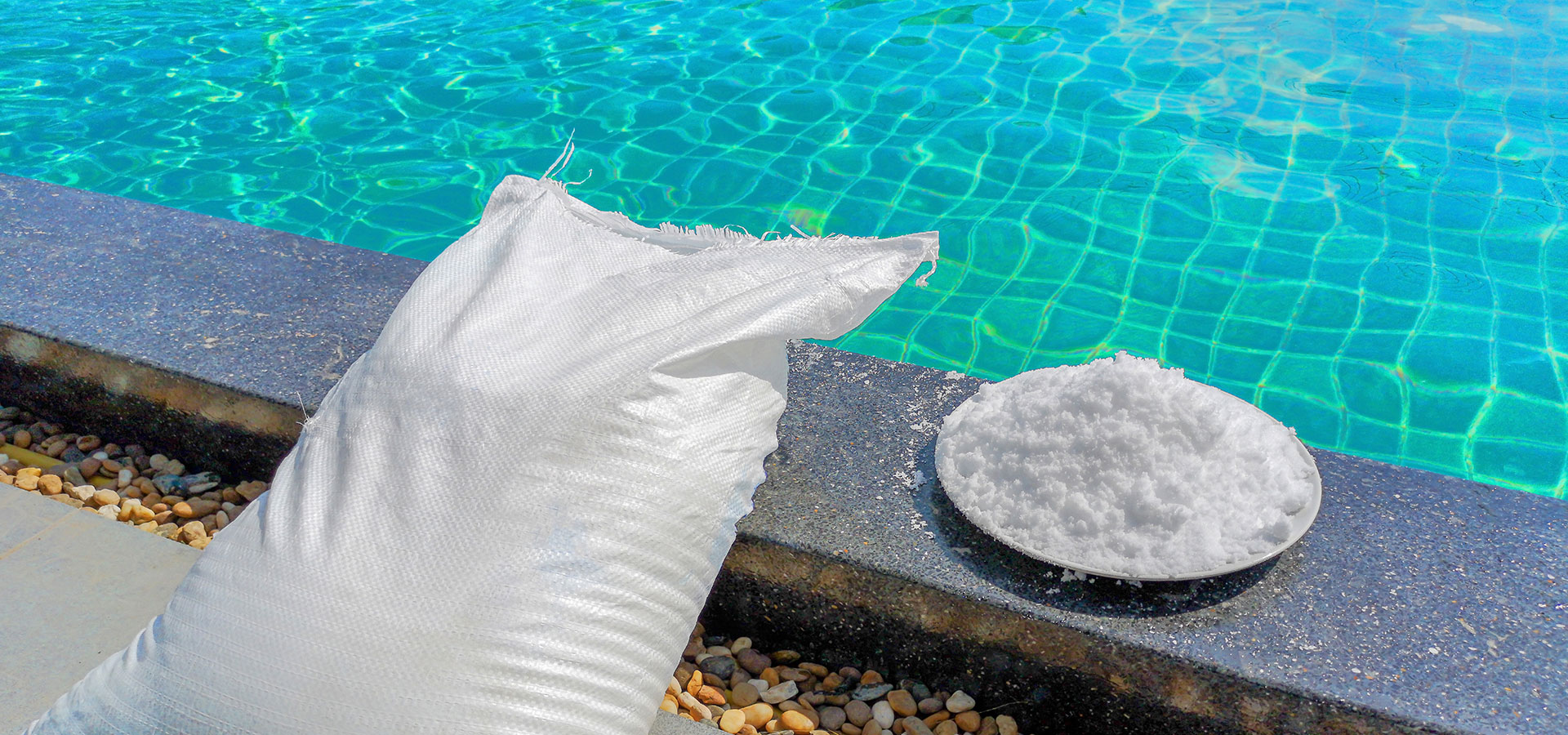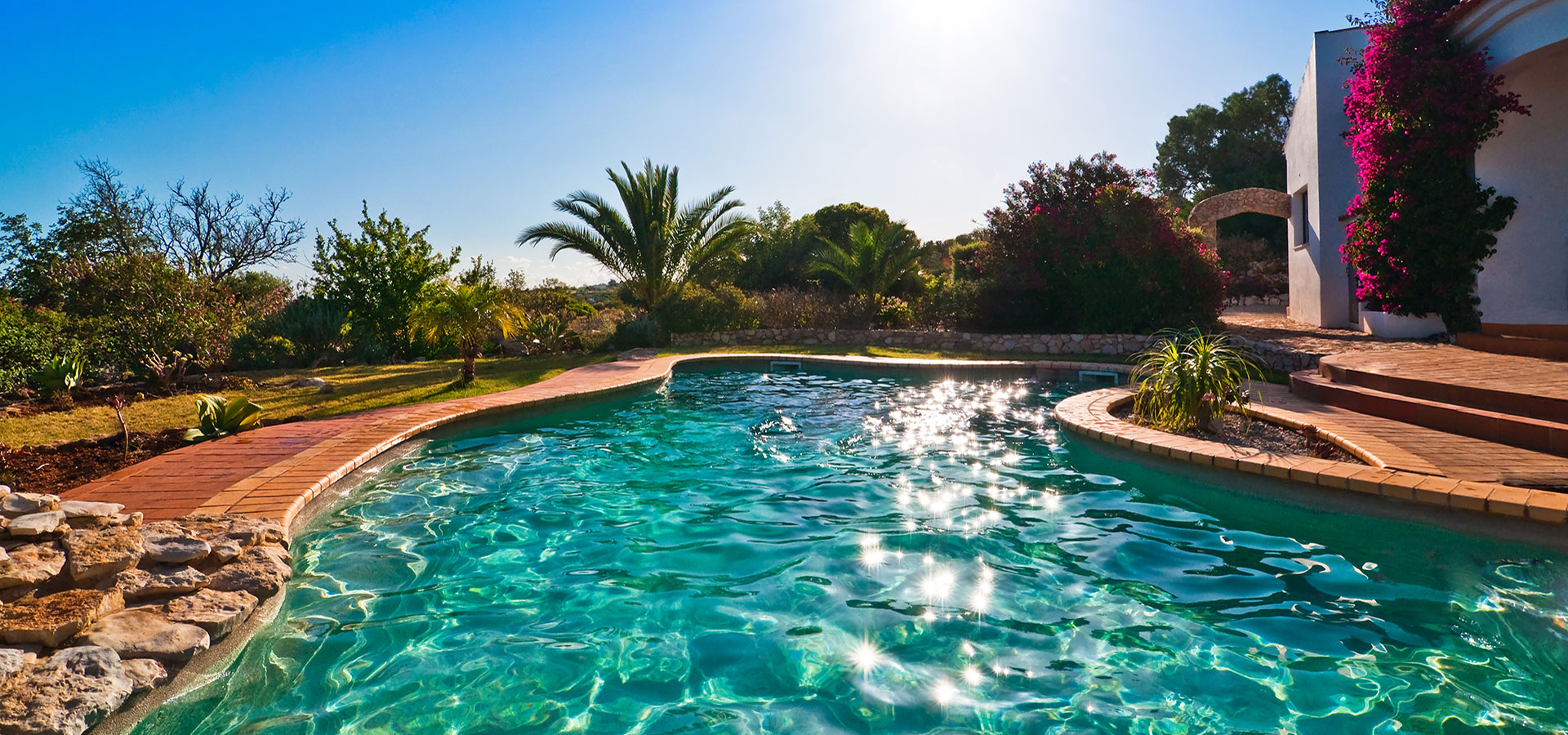Saltwater pools are becoming increasingly popular, and it’s easy to see why. They’re safe and pleasant to swim around in, and you don’t have to worry about the smell or side effects of chlorinated water when you have a saltwater pool system.
There are plenty of other benefits of saltwater pool systems, too, but how do saltwater swim pools actually work? In this guide, we’ll take a look at how a saltwater pool system works and look at some of the pros and cons of saltwater pool systems in general.
What Is a Saltwater Pool?
So, what exactly do we mean when we talk about saltwater pools? Well, as the name implies, saltwater pools are swimming pools that contain high amounts of salt. The pool user or owner adds salt into the pool, instead of chlorine, and a generator converts the salt into chlorine to kill bacteria and keep the water clean and fresh.
Due to the high levels of salt in the water, saltwater swim pools have a mild taste of salt but are far less salty when compared to seawater. In fact, they’re about 10% the salinity level of the ocean water, being closer to tears or contact lens cleaner in terms of their saltiness.
How Does a Saltwater Pool System Work?
How does a saltwater pool system work? Well, the key component of any saltwater pool system is the generator. Known as an electrolytic chlorine generator, or ECG, the generator works to separate salt that has been added to the pool into a safe pool sanitizer called hypochlorous acid, or HOCl.
To start the process, the user has to add salt. Usually, you can simply pour salt straight from the bag into the pool and then wait for it to dissolve. Then, the ECG can start working. The generator contains titanium plates, and as the water passes over the plates, it connects with a very weak electric current, breaking it down via a chemical process called electrolysis.
This electrolysis procedure results in the formation of two new ingredients: sodium hypochlorite and hypochlorous acid. These terms might sound complicated, but they’re basically just forms of chemical chlorine. Effectively, the ECG turns salt into chlorine, keeping your pool clean without the need to add chlorine, like in traditional chlorine pools.

What Is a Salt Chlorine Generator?
A salt chlorine generator is a key piece of pool equipment for saltwater pools. It helps to control the chlorine system in this type of pool, converting the saltwater molecules into pure forms of chemical chlorine in order to keep the chlorine levels up and the pool clean.
How Much Salt Does My Pool Need?
This will depend on the size of your pool. Ideally, you need to have the salt level at around 2,700 to 3,400 ppm (parts per million), but bigger pools will need more salt to reach that level. You can use an online calculator or contact our professionals to learn more.
What Type of Pool Is Best for Saltwater?
In general, fiberglass composite pools tend to be some of the best for salt water, due to the fact that the salt won’t cause the pool surface to corrode or wear away. Pools with metal components aren’t as well-suited, as the salt can damage the metal over time. The best pool designers can help you with your custom pool plan, and can also help with budgeting for your pool.
What Are the Disadvantages of Saltwater Pools?
- Cost – One of the disadvantages of saltwater pools is the fact that you have to spend more on them up-front. The initial investment cost can be quite high with these kinds of pools compared to more traditional options.
- Complexity – Not only are saltwater pools more costly, but they can be a little more complex to manage. If anything goes wrong, you may have to call in an expert professional, which can cost more than a typical pool repair company.
- Damage – Another issue with saltwater systems is that the salt itself can corrode and damage certain materials, so you have to be careful about which pool items and pieces of equipment you use.

What Are the Benefits of a Saltwater Pool?
- Gentle – When it comes to the pros and cons of salt water pool, many people say that swimming in a saltwater pool is more enjoyable and gentler on a person’s skin and eyes compared to chlorinated options.
- Safe – Another of the benefits of saltwater pool is that studies suggest this kind of pool water is safer overall compared to chlorinated alternatives. This is because you don’t need to worry about storing or handling harsh chemicals with a salt pool.
- Less Maintenance – Another great thing about salt water systems is that they generally require less maintenance and upkeep. The system is able to reuse the same salt over and over, so you don’t have to worry as much about topping it up all the time.
How Long Do Saltwater Pools Last?
A saltwater pool can last for decades, but the actual generator may only last for around five years before it needs repairs or replacement parts.
As you can see, there are many unique advantages associated with salt pools, and it’s easy to see why so many Americans are switching to this kind of pool system for their own homes. We hope that this guide has given you the info you need to make a decision for your own pool and to learn more about how salt pools work.


